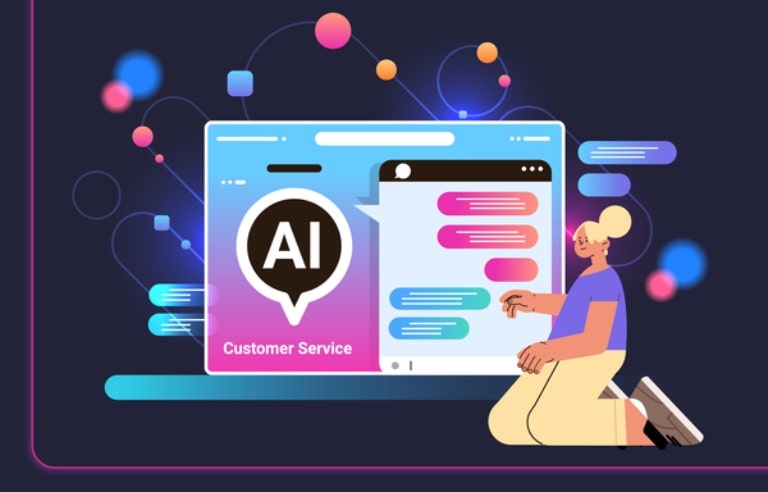How to Use AI Tools to Replace a Career Coach in 2025

Career coaches charge anywhere from $100 to $500 per hour. By 2025, AI tools will be able to handle 80% of what they do for a much lower cost. Most people need help with their resumes, preparing for interviews, and understanding salary information — not weekly therapy sessions. Here’s how to build an AI toolkit that delivers results.
What Do Career Coaches Actually Do?
Career coaches do five main things.
- They will talk with you to learn about your skills and interests.
- They help create resumes that pass ATS systems and catch the attention of recruiters.
- They help you prepare for interviews by having mock sessions and giving you feedback.
- They help set salaries by using information about the job market.
- Finally, they make a plan for your career based on your goals.
Most of these tasks follow predictable patterns. That’s why AI excels at them.
AI Tools to Replace Your Career Coach
Now that we know what career coaches do, let’s talk about creative tools you can use with AI that do the same things for a lot less money and just as well.
AI Resume Builder
Rezi, Kickresume, and Resume.io now use GPT-4 to analyze job descriptions and improve your resume. Upload your current resume and a target job posting. The AI identifies missing keywords, suggests achievement-based bullets, and reformats everything to beat ATS filters.
The best part? These tools update as soon as the job market changes. A human coach might have information that is months old. AI pulls from millions of successful resumes, updated daily.
AI Sentence Rewriter Tool
Your communication style is as important as your experience. Tools like Overchat AI can write sentences for you and produce polished professional language. They’re especially helpful for cover letters, LinkedIn messages, and follow-up emails.
Use these tools with your rough draft. They’ll suggest multiple revisions that keep your meaning while making it clearer and more impactful. For example, “I helped with sales stuff” turns into “I drove a 23% increase in quarterly revenue through strategic client relationship management.”
AI Chatbots
ChatGPT, Claude, and Perplexity act as career advisors you can ask for advice whenever you need it. Ask them anything from “How do I switch from teaching to technology?” to “Which certifications are important for project management in 2025?”
The key is to be specific. Don’t ask, “How do I get a better job?” Ask, “I’m a high school math teacher who knows Python. What should I do to become a data analyst in six months?” If you give more context, the guidance will be better.
Underrated Ways to Use AI
The strategies we’ve covered so far are relatively basic, but this is just the beginning. With some creativity, you can use AI assistants for far more than just writing help. Here are three ways that AI can help you find a job that you might not have known about.
Network
LinkedIn’s AI now suggests connection messages based on mutual interests and career paths. But the real power is in using ChatGPT to create personalized messages. Use ChatGPT to create a copy of someone’s LinkedIn profile. Ask it to list three specific topics to discuss and write a request to connect. You’ll get responses that feel human because they’re based on real commonalities.
AI can also analyze your current network. Tools like Crystal Knows can tell you more about the personalities of your contacts. This can help you adjust the way you talk to each person.
Negotiate Salaries
Most people are afraid of negotiating their salary. AI removes the emotion. Levels.fyi, Glassdoor’s AI salary tool, and Payscale gather real-time compensation data. But don’t stop there. Use ChatGPT to practice negotiating. Enter your offer details and try out different scenarios. It will counter your arguments and help you prepare for tough questions. Some professionals say they earn $10,000 to $30,000 more by using AI first.
Create Your Career Roadmap
Traditional career coaches use whiteboards to make plans. AI is better at it. Tools like Pathrise’s AI career planner and ChatGPT can analyze career paths. Enter your current location and your future location. They’ll identify skill gaps, suggest intermediate roles, and estimate realistic timelines.
The output includes:
- Specific skills to be learned each quarter.
- Certifications that really matter
- Companies that might hire you for the job you want:
- Events where you can meet other people in your industry
What AI Can’t Do
Now that we’ve gone over everything, let’s talk about why AI isn’t a magic solution. It’s just as important to understand where AI can’t help you as it is to understand where it can.
- First, AI doesn’t understand office politics. It can’t tell you if your boss is actually supportive or just nice. It won’t notice that your company promotes people who golf with executives, not those who excel at their jobs.
- Secondly, AI also has trouble making deeply personal decisions. Should you take a pay cut to have more free time? Is it worth moving for a better job? These require human judgment about your values and circumstances.
- Finally, AI can’t advocate for you in real time. When negotiations get complicated or legal issues arise, you need a lawyer to help you.
Bottom Line
A full AI career coaching setup costs about $50 a month — or as little as $4.99/week if you use Overchat AI for everything. That’s less than 30 minutes with a human coach. For most job changes, AI gives enough guidance to move forward confidently. Save the human coaches for when you really need that personal touch — and save your money. You have the tools. Will you use them?




